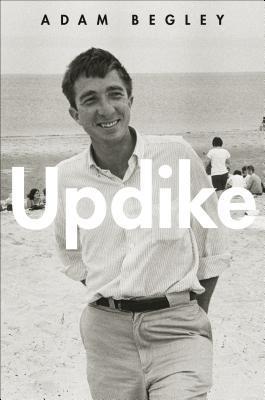What do you think?
Rate this book


576 pages, Hardcover
First published April 8, 2014
By the time "Rabbit" hit the bookstores Updike was ‚Äòfalling in love, away from marriage.‚Ä� After Rabbit, Run, sexual elements became stronger in his fiction, and if the Brewer of ‚ÄúRabbit‚Ä� was really Reading, Ipswich was really Tarbox, despite Updike‚Äôs denials ‚Ä� especially his denials after Couples appeared in 1968. Updike wasn‚Äôt the first in his Ipswich crowd to commit adultery, and possibly not the first in his marriage, according to Begley. Mary liked to flirt at parties, and she took a lover in the early ‚Ä�60s. ‚ÄúWith one or two exceptions there was no actual wife-swapping,‚Ä� no key parties or orgies, but Updike admits in his memoirs he was a ‚Äústag of sorts.‚Ä�